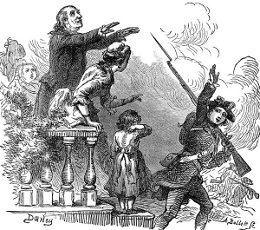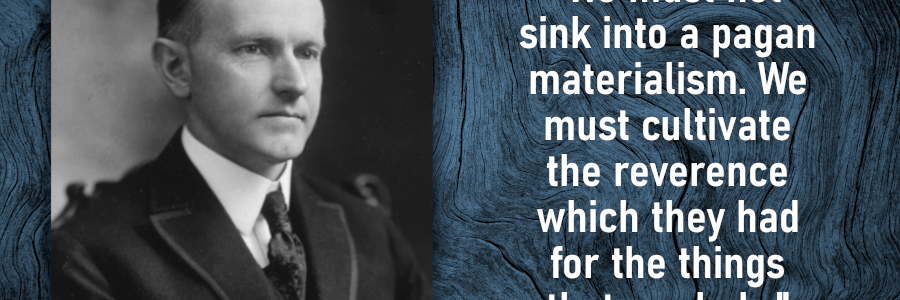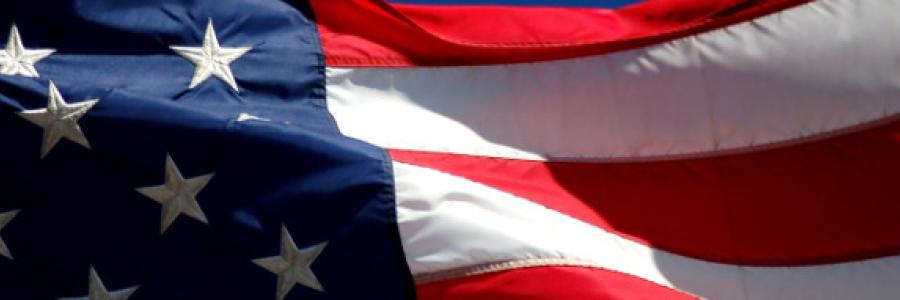Liberty: An Ideal Rooted in Our Very Humanity
Body
“This Fourth let’s remember the roots of our republic—the idea of liberty—which slowly spread to embrace every American in every walk of life. No one is promised equality of outcomes in their life. But everyone should cherish the promise that liberty provides as they pursue their vocations.” - Acton
Discussion
Daniel Webster’s July 4, 1800 Speech at Hanover
Editor’s note: The full title of the speech below is “An oration, pronounced at Hanover, New-Hampshire, the 4th day of July, 1800; being the twenty-fourth anniversary of American independence.” The speaker is Daniel Webster, who was then a junior at the University of Dartmouth.
AN ORATION.
COUNTRYMEN, BRETHREN, AND FATHERS,
Discussion
Let Freedom Ring
Body
“On the 4th of July, I’m always reminded of times I’ve traveled in countries where freedom is severely curtailed. Or where the people have been freshly freed from the chains of injustice, and the joy of their release was palpable.” - Church & Culture
Discussion
Why Israelis Wish America Happy Independence Day
Body
“While I live in Israel today, I spent my childhood in the U.S., and I am proud to say that I am a citizen of both countries.” - CPost
Discussion
The Principle of the Sovereignty of the People in America
From Democracy in America (De La Démocratie en Amérique) vol. I, by Alexis de Tocqueville, 1835.
Chapter 4: The Principle of the Sovereignty of the People in America
It predominates over the whole of society in America — Application made of this principle by the Americans even before their Revolution — Development given to it by that Revolution — Gradual and irresistible extension of the elective qualification.
Discussion
Remembering the real revolution of July 4
Body
“These inspirational and linguistically beautiful words of the Declaration of Independence justified the American colonies’ break from England. But they did more than that. They explained to the world and to history that natural rights formed the basis of civil law and government. This was the truly revolutionary aspect of that document signed on July 4, 1776.” - Acton
Discussion
5 Facts about Independence Day
Body
“3. The signed copy of the Declaration is the official, but not the original, document….4. John Hancock, the President of the Continental Congress at the time, was the first and only person to sign the Declaration on July 4, 1776” - Acton
Discussion
Can We Celebrate Independence without Celebrating Armed Rebellion?
 First appeared at SI in July of 2011.
First appeared at SI in July of 2011.
Something doesn’t add up. We refer to July 4 as Independence Day. We refer to the war that followed as the Revolutionary War. But if we viewed ourselves as independent of British rule on July 4, how could we have engaged in revolution after July 4? Revolution normally precedes independence. Either the day or the war is a misnomer.
For Christians the incongruity raises deeper questions. Given the response to government that Scripture requires, shouldn’t we oppose the whole idea of revolution, regardless of the circumstances? And if we’re opposed to revolution, can we rejoice in independence?
The Bible and revolution
Genesis 9 is understood by many to represent God’s re-founding of the institution of human government. The NT emphasizes submission to that institution as our Christian duty.
And He said to them, “Whose image and inscription is this?” They said to Him, “Caesar’s.” 17 And Jesus answered and said to them, “Render to Caesar the things that are Caesar’s, and to God the things that are God’s.” And they marveled at Him. (Mark 12:16–17)
Remind them to be subject to rulers and authorities, to obey, to be ready for every good work… (Titus 3:1)
Therefore submit yourselves to every ordinance of man for the Lord’s sake, whether to the king as supreme, 14 or to governors, as to those who are sent by him for the punishment of evildoers and for the praise of those who do good. 15 For this is the will of God, that by doing good you may put to silence the ignorance of foolish men. (1 Peter 2:13–15)




Discussion